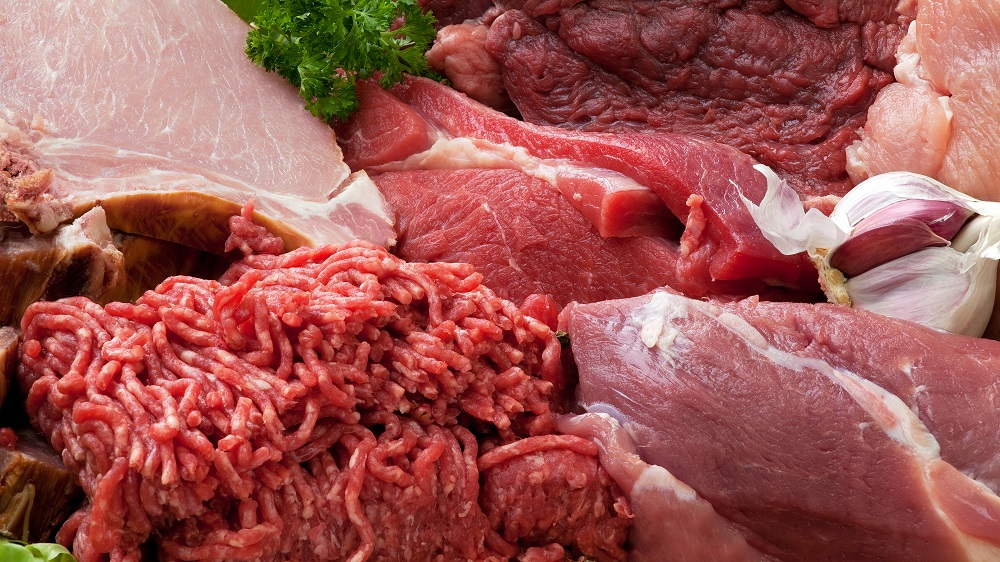High Protein Consumption May Drive Atherosclerosis
- The kind of protein may also matter more than the amount.

A new study suggests that increased protein intake, specifically of the amino acid leucine, can exacerbate atherosclerosis by inhibiting autophagy in macrophages [1].
Protein: friend or foe?
The protein we get from food is indispensable, as it allows us to produce our own proteins, but the ideal amount of dietary protein remains an open question. On one hand, protein restriction markedly extends lifespan in animal models, and there is some evidence from human epidemiological studies pointing in the same direction [2]. On the other hand, protein is required for building muscle, which is important to stave off sarcopenia. Some evidence suggests that older people should consume more protein from non-inflammatory sources to compensate for age-related muscle loss.
However, that might not be the only connection between protein and aging. A new study published in Nature Metabolism suggests that dietary protein, and one amino acid in particular, play an important role in atherosclerosis. This condition, in which plaques accumulate on arterial walls, causes heart attacks and strokes and is ultimately responsible for a quarter of all deaths.
Autophagy and mTORC1
An earlier 2020 study by the same group showed that high protein consumption exacerbated atherosclerosis in a mouse model of this disease by activating the protein mTORC1 in macrophages [3]. Macrophages are immune cells that are drawn to developing lesions on arterial walls. They facilitate healing by removing harmful debris and substances such as LDL cholesterol. Sadly, macrophages often “overeat” and turn into bloated foam cells that get stuck in the atherosclerotic plaque, contributing to its growth.
As to mTORC1, this protein promotes synthesis of other proteins when nutrients (such as amino acids, proteins’ building blocks) are plentiful. It also suppresses autophagy, the process of intracellular junk removal. When resources are scarce, mTORC1 quiets down, and the cell switches to a maintenance and preservation mode. There are many additional details to this process, but in general, this switch from growth to repair is probably a major reason why caloric restriction and rapamycin, a potent mTORC1 inhibitor, increase lifespan in animal models.
More atherosclerosis despite less fat
That 2020 study suggested that high protein consumption decreases macrophages’ fitness by activating mTORC1 and downregulating autophagy. In this new study, the researchers elucidated new exciting details of this phenomenon.
First, they tested two extreme scenarios of very low and very high protein consumption in a small human cohort by feeding the participants isocaloric liquid meals that contained either 10% or 50% protein. Ingesting a high-protein meal but not a low-protein meal increased the levels of amino acids in the blood and mTORC1 signaling while suppressing autophagy in monocytes, which macrophages differentiate from.
The researchers then switched to a more real-life scenario, in which one meal contained 15% protein, which is representative of the average protein intake in the general population, and the other contained 22% protein. Despite the seemingly small difference, only the 22% meal increased circulating amino acid levels and decreased autophagy markers.
When the researchers drilled down to particular amino acids, leucine emerged as the most powerful mTORC1 activator by far. High leucine levels also caused a decline in mitochondrial health and increased apoptosis (cellular death) in macrophages.
Switching to mice and feeding them several test diets, the researchers were able to confirm that leucine was almost single-handedly responsible for mTORC1 activation in macrophages and its harmful downstream effects. Mice fed an analog of a high-protein Western diet showed markedly more atherosclerotic lesions despite staying leaner than those fed low- and medium-protein diets.
Consider the amino acids
Leucine is abundant in animal protein, which might be one of the reasons why, according to some research, plant protein is healthier. These results suggest that there are more things to consider in protein consumption than muscle mass, however important that might be. Instead, fine-tuning protein intake with particular amino acids in mind appears to be a good strategy, as recent research has also shown methionine [4] and isoleucine restriction increasing healthspan and lifespan in animal models.
“Our study shows that dialing up your protein intake in pursuit of better metabolic health is not a panacea. You could be doing real damage to your arteries,” said Babak Razani, professor of cardiology at the University of Pittsburgh and a senior author of the study. “Our hope is that this research starts a conversation about ways of modifying diets in a precise manner that can influence body function at a molecular level and dampen disease risks.”
In conclusion, our work has uncovered a mechanism by which high protein intake, through an increase in plasma leucine, causes mTORC1-mediated inhibition of monocyte/macrophage autophagy and subsequent atherogenesis. This has important clinical and public health implications because protein intake at any level above the minimum recommended daily intake of 0.8 g/kg/d is considered acceptable and safe and has become popular; however, the results from our studies suggest that high protein intake should be considered with caution.
Literature
[1] Zhang, X., Kapoor, D., Jeong, S. J., Fappi, A., Stitham, J., Shabrish, V., … & Razani, B. (2024). Identification of a leucine-mediated threshold effect governing macrophage mTOR signalling and cardiovascular risk. Nature Metabolism, 6(2), 359-377.
[2] Babygirija, R., & Lamming, D. W. (2021). The regulation of healthspan and lifespan by dietary amino acids. Translational medicine of aging, 5, 17-30.
[3] Zhang, X., Sergin, I., Evans, T. D., Jeong, S. J., Rodriguez-Velez, A., Kapoor, D., … & Razani, B. (2020). High-protein diets increase cardiovascular risk by activating macrophage mTOR to suppress mitophagy. Nature metabolism, 2(1), 110-125.
[4] Parkhitko, A. A., Wang, L., Filine, E., Jouandin, P., Leshchiner, D., Binari, R., … & Perrimon, N. (2021). A genetic model of methionine restriction extends Drosophila health-and lifespan. Proceedings of the National Academy of Sciences, 118(40), e2110387118.








